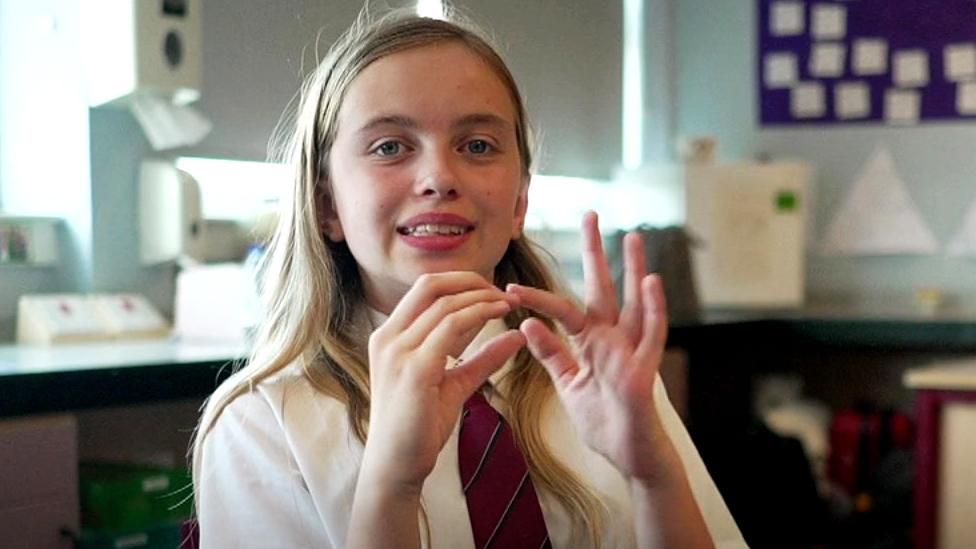British Sign Language to be introduced as GCSE in England
- Published
- comments
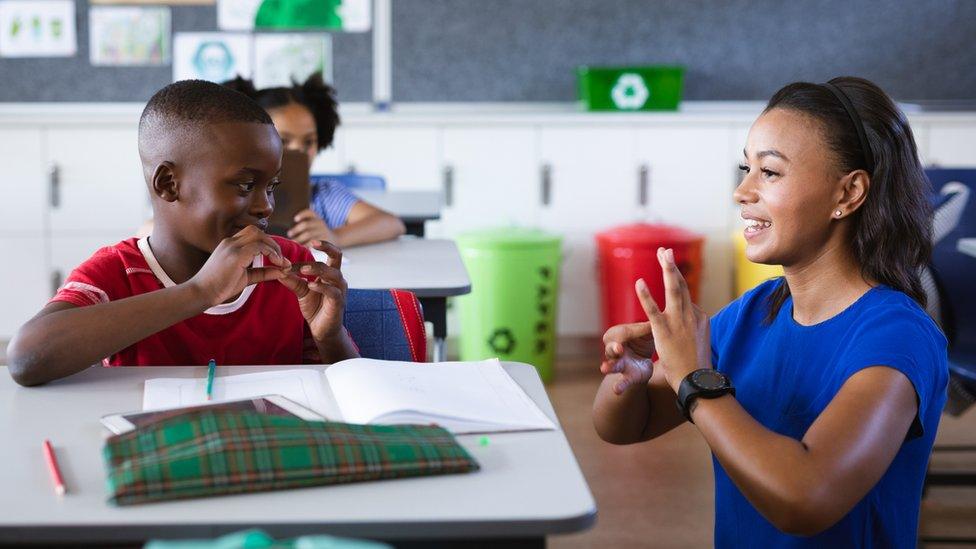
GCSE pupils will be able to choose to study British Sign Language from 2025
British Sign Language (BSL) will be taught as a GCSE in England from September 2025, the government says.
It says the qualification will be open to all pupils, who will learn about 1,000 signs, as well as an important life skill and advance inclusivity.
Education Secretary Gillian Keegan said the subject will "open so many doors for young people".
The exams regulator Ofqual will review and accredit the syllabus before it can be taught in schools and colleges.
The curriculum has been finalised after a 12-week public consultation with input from parents, teachers and organisations from the deaf and hearing communities.
BSL was officially recognised as a language in the UK last year, after the British Sign Language Act was passed.
Susan Daniels, chief executive of the National Deaf Children's Society, said she was "delighted" the course content had been published after a decade of campaigning, adding that the GCSE will celebrate "the rich culture and history of British Sign Language".
'Powerful step to equality'
The government first said it would consider introducing a GCSE in BSL after a long-fought campaign by 17-year-old Daniel Jillings.
The teenager is profoundly deaf and was born without a cochlea, meaning he cannot use hearing aids or cochlear implants and does not use speech.
Daniel began campaigning for the GCSE when he was 12 years old.
"This is a significant moment in the history of the British deaf community, as it is a powerful step to equality," he says.
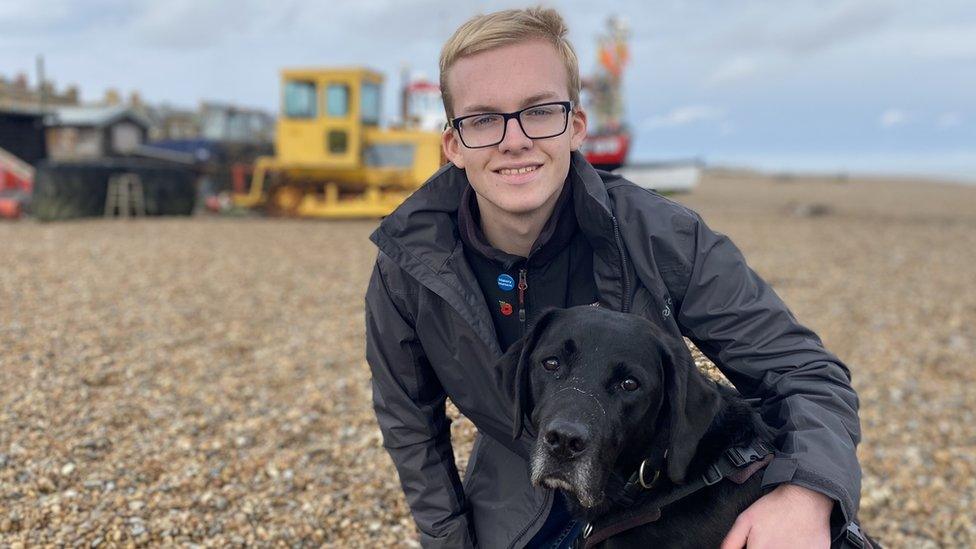
Daniel says the GCSE will mean deaf students will feel less isolated in school
Earlier this year, the teenager spoke at a parliamentary reception about the importance of deaf awareness and specialist education support for deaf young people.
"It will also allow hearing students to learn BSL so they can improve their awareness of the deaf community," he adds.
It is too late for Daniel to take advantage of this GCSE, but he said he hoped "deaf students will feel less isolated in school".
The British Deaf Association estimates about 151,000 people use BSL in the UK, with 87,000 being deaf.
Arran Masterman, from the National Deaf Children's Society, said it was a "momentous step forward", adding that "it is a fun, engaging language to learn".
Mr Masterman, who uses BSL as his first language, also said it would help ensure "the deaf community, but especially deaf children and young people, don't get left behind".
Environmental science terms have been added to BSL to help teachers, scientists and deaf children discuss climate change
'Practical constraints'
The question for schools will now be how to offer and deliver this to students.
Geoff Barton, general secretary of the Association of School and College Leaders, said the union "fully supported" the new GCSE, but warned "there are likely to be practical constraints because schools are under tremendous pressure in terms of staffing, finances and time".
Sue Denny, president of the British Association of Teachers of the Deaf, said she would be keen to see training become available to deaf and hearing people who are fluent in BSL to teach the subject for GCSE.
She added there will also be a need to have sustainable succession planning to recruit and retain suitable qualified BSL teachers.
Related topics
- Published21 December 2023
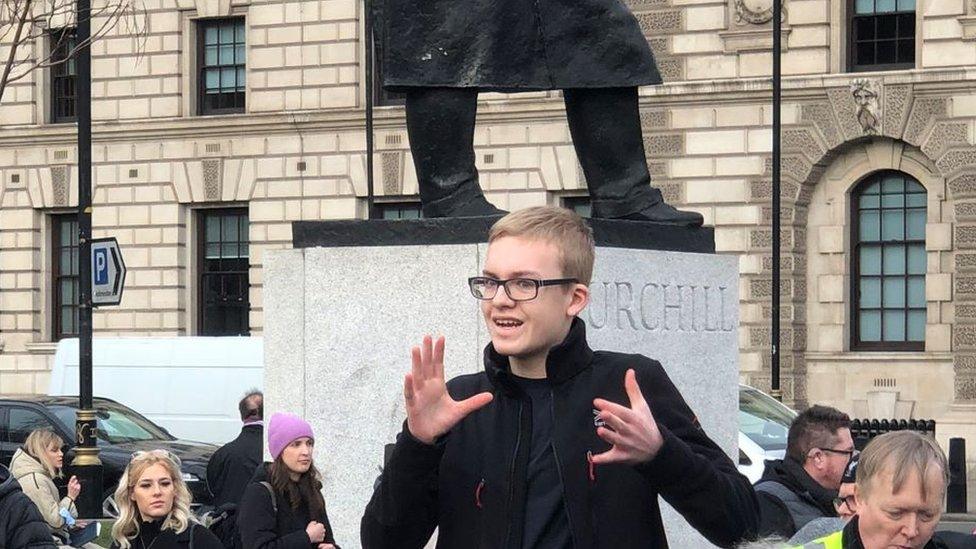
- Published8 December 2023
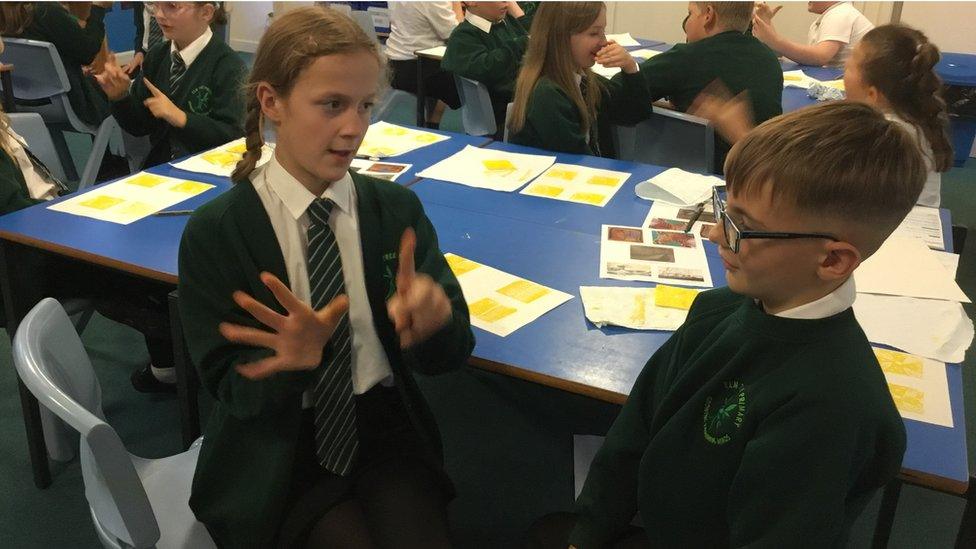
- Published6 July 2023

- Published27 January 2022
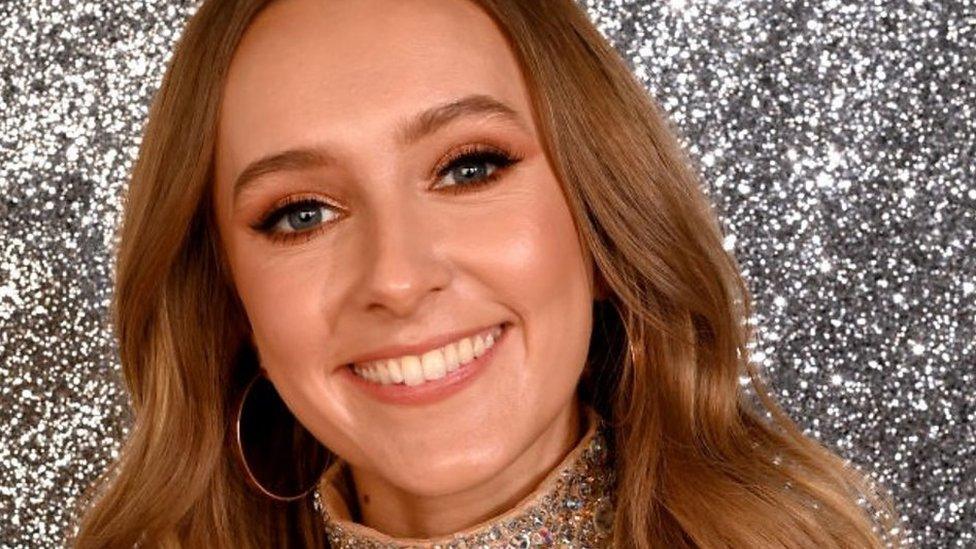
- Published17 December 2023
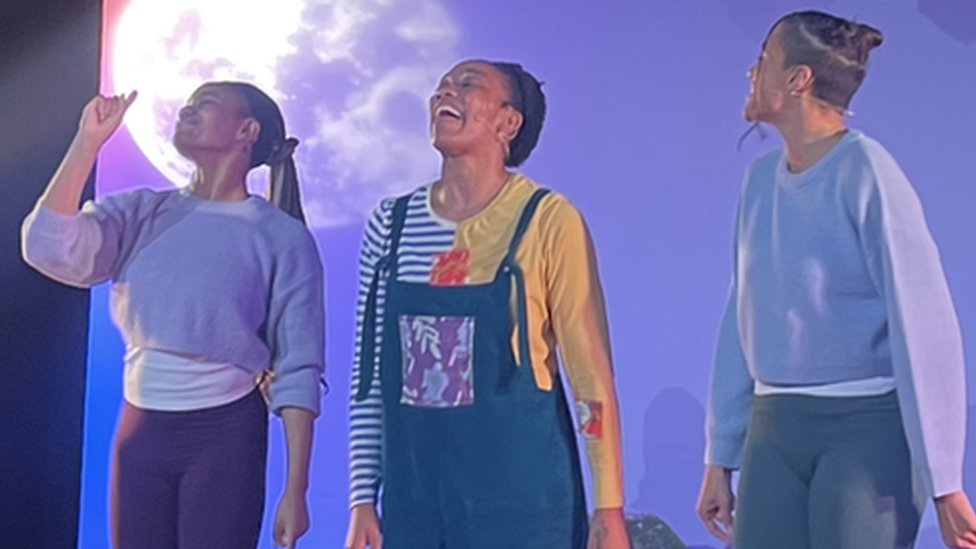
- Published11 August 2023
